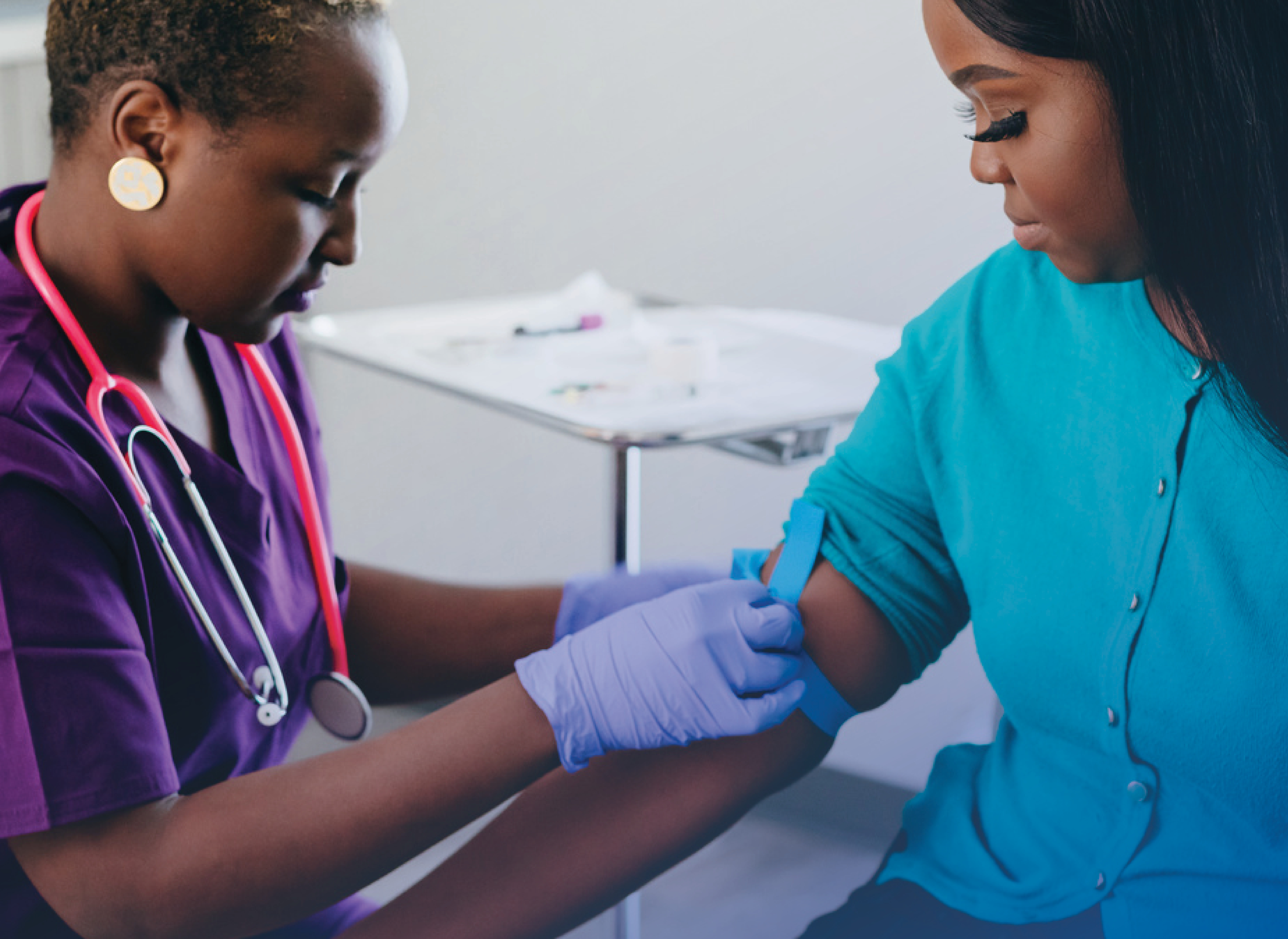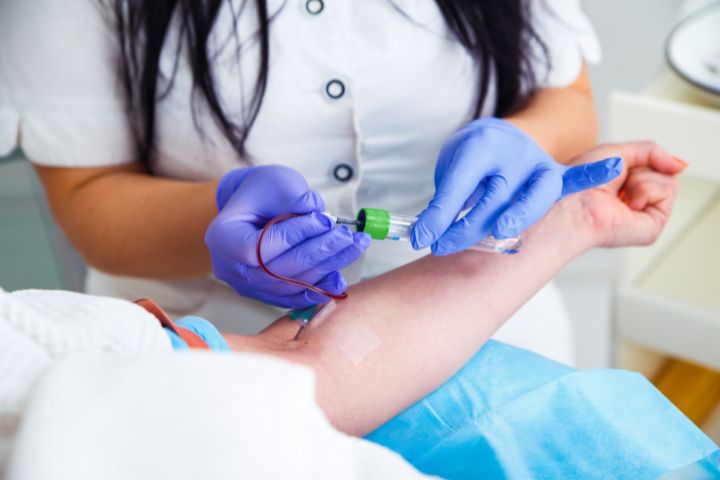Phlebotomy Training Course Success Tips: Networking Strategies
Phlebotomy Training Course Success Tips: Networking Strategies
Blog Article
The Course to Certification: Comprehending the Phlebotomy Educating Training Course Journey and Its Importance
As you think about the path to qualification in phlebotomy, it's important to comprehend the role you'll play in health care. Your training will certainly cover necessary abilities, from blood collection strategies to patient communication.

The Function of Phlebotomists in Healthcare
Phlebotomists play a necessary role in the medical care system, acting as the crucial web link in between people and necessary diagnostic testing. You'll do blood draws, making certain examples are gathered precisely and safely. Your experience aids in detecting clinical conditions, keeping track of health, and directing therapy decisions.
In your daily communications, you'll require to establish trust with individuals, making them really feel comfortable throughout what could be a demanding experience. You're responsible for classifying and managing samples carefully to avoid contamination or mistakes, which might affect examination outcomes.
Yet, you'll commonly work alongside physicians and nurses, connecting essential info concerning patients' problems. Your role is basic in keeping the workflow in healthcare setups, ensuring prompt and exact results. By mastering your abilities, you add meaningfully to person care, making you an important component of the clinical team. Embracing this obligation is essential to your success as a phlebotomist.
Summary of Phlebotomy Training Programs
When discovering phlebotomy training programs, you'll find numerous kinds developed to fit various schedules and finding out styles. Each program assists you develop crucial abilities like blood collection and patient interaction. Comprehending these alternatives is essential to picking the right path for your occupation.
Kinds Of Educating Programs
Numerous sorts of training programs are offered for those aiming to end up being skillful in phlebotomy. You can pick from certification programs, which usually last a few months and concentrate on crucial abilities. There are also diploma programs that provide an even more thorough education, frequently lasting approximately a year. If you're seeking a deeper understanding, an associate level in an associated area may be the ideal fit. On-line programs supply flexibility for those stabilizing work or household dedications, enabling you to study at your own pace. Furthermore, some medical facilities and clinics offer on-the-job training programs, supplying sensible experience while you find out. Whatever course you choose, each program aims to outfit you with the needed skills for a successful phlebotomy occupation.

Key Skills Established
Mastering phlebotomy needs a set of crucial skills that are established with complete training programs. You'll find out technical skills like proper vein selection, needle insertion, and blood collection strategies. These hands-on methods guarantee you can perform procedures safely and efficiently. Furthermore, communication abilities are fundamental; you'll need to engage with clients, discuss procedures, and put them at simplicity. Comprehending composition and physiology is critical, also, as it aids you situate capillaries and understand the body's response to blood draws. You'll gain understanding of security protocols and infection control, ensuring you keep a sterile atmosphere. Each of these abilities is necessary for your success as a licensed phlebotomist, making you a beneficial property in any health care setting.
Secret Components of a Phlebotomy Course
In a phlebotomy training course, you'll concentrate on crucial subjects that lay the foundation for your future occupation. You'll involve in hands-on training that enables you to apply what you have actually learned in real-world setups. Both the core curriculum and useful experience are vital for your success as a phlebotomist.
Core Educational Program Introduction
While pursuing a phlebotomy training program, you'll experience a core educational program developed to equip you with essential abilities and knowledge. Phlebotomy school. This curriculum usually consists of anatomy and physiology, focusing on the circulatory system and understanding blood components. You'll likewise find out about different types of blood collection methods, consisting of venipuncture and capillary puncture methods
Furthermore, infection control and safety and security methods are necessary elements, guaranteeing you know just how to preserve a sterilized environment. You'll research patient communication, emphasizing interaction and empathy, which are critical for reducing individual anxiousness.
Hands-On Training Experience
Obtaining hands-on experience is a vital component of your phlebotomy training course. This useful training permits you to apply what visit site you have actually discovered in a real-world setting, enhancing your abilities and confidence. You'll exercise venipuncture methods, find out just how to deal with various kinds of specimens, and get acquainted with the equipment made use of in the area. Under the advice of knowledgeable instructors, you'll refine your skills, ensuring you're gotten ready for any situation you may deal with.
In addition, you'll get the chance to connect with people, which is important for creating your communication skills. This mix of technological efficiency and interpersonal abilities is critical for your success as a licensed phlebotomist. Ultimately, hands-on training is where concept fulfills technique, solidifying your understanding and preparedness for certification.
Qualification and Licensing Requirements
Prior to you can start your profession in phlebotomy, it is important to understand the accreditation and licensing demands that vary by state. The majority of states call for phlebotomists to hold an accreditation from a recognized company, such as the National Phlebotomy Association or the American Culture for Medical Pathology. These accreditations typically entail passing an exam that checks your expertise and skills in the area.
In addition to certification, some states have details licensing requirements. You may require to finish a specific variety of hours in clinical practice, submit proof of training, or go through a history check. It is vital to investigate your state's policies to see to it you meet all essential requirements.
Staying notified about these needs not over here just aids you safeguard a position however likewise improves your credibility as an expert. By fulfilling these needs, you'll be well on your way to an effective career in phlebotomy.
Hands-On Training and Practical Experience
Hands-on training and sensible experience are important components of your phlebotomy education, as they allow you to apply academic understanding in real-world situations. During your training, you'll take part in monitored venipuncture, discover correct strategies, and come to be aware of numerous blood collection devices. This straight participation is crucial for developing your confidence and developing your abilities.
You'll work carefully with knowledgeable specialists who can lead you with the subtleties of patient interaction and sample handling. Each session not only enhances your understanding but likewise prepares you for the hectic atmosphere of health care settings.
Furthermore, many programs integrate scientific turnings, permitting you to experience diverse settings, from medical facilities to outpatient facilities. This exposure assists you adjust to different difficulties and client demands, ensuring you're well-prepared for your future function. Accept these opportunities, as they're necessary to becoming a skilled and compassionate phlebotomist.
Obstacles Dealt With During Training
While acquiring hands-on experience is important, it is necessary to recognize the challenges that can occur throughout your phlebotomy training. You may run into anxiety when carrying out procedures on actual clients, specifically if you're new to the environment. The pressure to obtain everything right can be overwhelming. Furthermore, grasping the skills required for blood draws takes technique; you may fight with method originally.
Time management can also be a hurdle, as balancing concept, sensible sessions, and individual dedications can really feel intimidating. You may deal with differing finding out rates amongst your peers, leading to feelings of insecurity if you assume you're falling behind. Finally, go to my site adapting to the various characters of teachers can be tough, as each might have a special teaching design.
Recognizing these obstacles early on can prepare you for success and help you establish durability throughout your training trip.
Job Opportunities After Certification

As you gain experience, you may even take into consideration specializing in locations like pediatric or senior citizen phlebotomy, accommodating details individual demands. Some phlebotomists select to advance their occupations by coming to be laboratory professionals or going after further education and learning in healthcare areas.
In addition, your certification can cause duties in training or supervising brand-new phlebotomists, permitting you to share your understanding. With the medical care sector constantly growing, your skills will certainly constantly be in need, leading the way for a stable and fulfilling profession. Embrace the opportunities waiting on you!
Frequently Asked Questions
What Is the Normal Duration of a Phlebotomy Educating Training Course?
Phlebotomy training programs generally last around 4 to 8 weeks. You'll engage in hands-on practice, classroom guideline, and on-line learning. Finishing this training prepares you for certification and a satisfying job in healthcare.
Are Online Phlebotomy Courses Available?
Yes, online phlebotomy programs are offered. They provide flexibility and ease, permitting you to research at your very own speed. Just validate the program is recognized to meet certification requirements and acquire important abilities for your occupation.
Just How Much Does Phlebotomy Training Normally Expense?
Phlebotomy training generally costs between $700 and $2,500, relying on the program and place. You ought to take into consideration aspects like program size, included materials, and hands-on experience when choosing the appropriate training for you.
What Prevail Requirements for Phlebotomy Training?
Usual prerequisites for phlebotomy training commonly include a high college diploma or GED, booster shots, and a background check. Some programs might additionally need standard health care knowledge or accreditations, guaranteeing you're gotten ready for hands-on training.
Can I Work While Finishing My Phlebotomy Training?
Yes, you can work while finishing your phlebotomy training. Numerous pupils balance work with their studies, yet make sure to handle your time efficiently to assure you meet both job and training dedications effectively.
Report this page